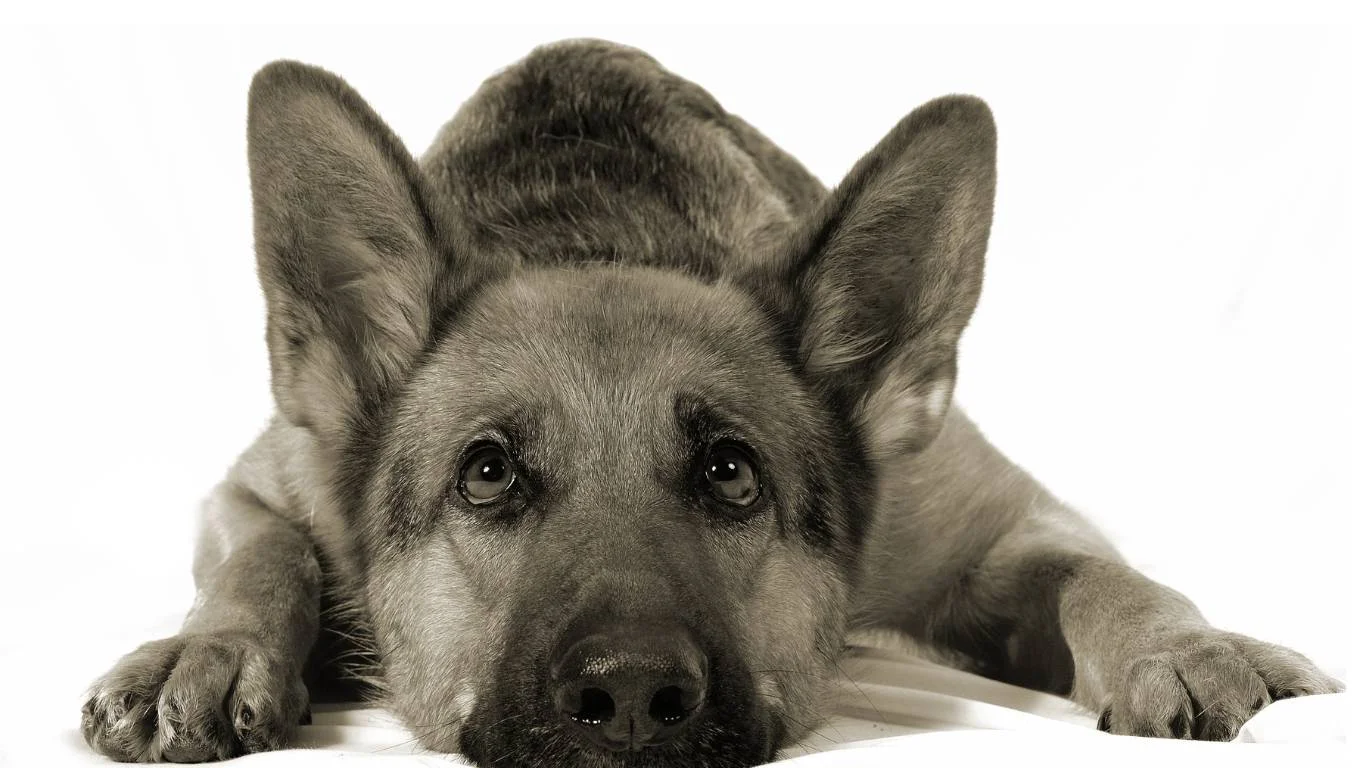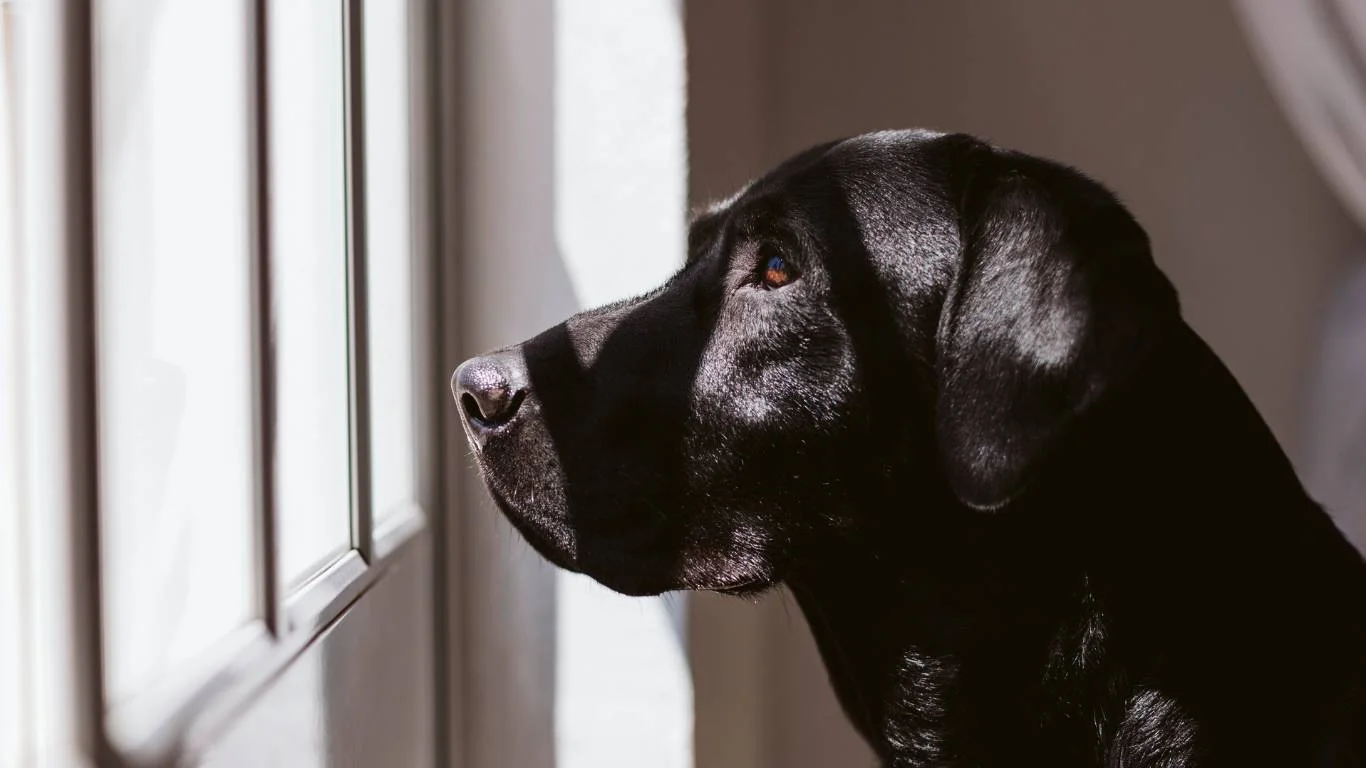Can Dogs Get Acid Reflux? Symptoms & Remedies for Relief
Ever wondered, can dogs get acid reflux? Symptoms and remedies for our four-legged besties are actually something way more common than a lot of pet parents realize. I first learned about it firsthand working as a Veterinary Assistant with a strong focus on pet nutrition. One minute you’re thinking your dog just has a little burp or upset tummy — next thing you know, you’re deep-diving into why they’re hacking, gagging, or refusing dinner. It’s wild how sneaky acid reflux can be in pups! Let’s dive in and chat about it (no white coats and stiff jargon here, just real talk from experience!).
Understanding Acid Reflux in Dogs

Just like in humans, acid reflux in dogs happens when stomach acid or bile flows back up into the esophagus. Picture it: the burning, the discomfort, the constant swallowing. Poor pups! It’s super uncomfortable and, if left untreated, can cause serious health issues. I’ve seen dogs who were misdiagnosed for months just because their symptoms looked like other issues — so awareness is everything.
What Causes Acid Reflux in Dogs?
There’s a bunch of reasons why a dog might end up with acid reflux. In my hands-on experience at the clinic, the main culprits we saw included:
- Dietary issues – sudden food changes, fatty meals, or food intolerances
- Obesity – extra weight can literally push on the stomach and make reflux worse
- Hiatal hernia – a structural problem that some dogs are born with
- Medications – certain drugs (like anesthesia or anti-inflammatories) can weaken the esophageal muscles
- Age factors – young pups and seniors seem more vulnerable
When I’d chat with pet parents, they’d often be surprised that something as simple as a diet switch could trigger all this drama inside their dog’s little tummy.
Common Symptoms of Acid Reflux in Dogs

Knowing what to watch for is half the battle. The tricky part? The symptoms of acid reflux in dogs can mimic other health problems. Here’s what I personally keep an eye out for, based on countless consultations and hands-on experience:
- Frequent gulping or swallowing – almost like they’re trying to clear their throat constantly
- Gagging or regurgitation – this isn’t your regular throw-up session; it’s more passive
- Loss of appetite – food suddenly isn’t exciting anymore
- Weight loss – naturally follows when they’re eating less
- Bad breath – that acid smell is no joke
- Whining or signs of discomfort after meals
- Excessive drooling – especially if it’s not typical for your dog
During my time working closely with veterinarians, we often had to play detective — connecting the dots between subtle signs like “he’s just not eating like he used to” and full-blown reflux.
Breeds That May Be More Prone to Acid Reflux
Interestingly enough, certain breeds seem to draw the short straw when it comes to acid reflux. In my personal and professional experience, these breeds show up again and again in vet clinics dealing with digestive dramas:
- Bulldogs – their anatomy makes them prime candidates
- Boxers – known for GI sensitivities
- Chihuahuas – small size, big problems sometimes!
- Shih Tzus and Lhasa Apsos – tend to have more hernia issues
- Miniature Schnauzers – sensitive tummies galore
Of course, any dog can get acid reflux, but knowing if your breed has a higher risk definitely helps you stay on top of it before things get messy (or expensive!).
How Veterinarians Diagnose Acid Reflux in Dogs

If you’re sitting there now thinking, “OMG, my dog does some of those things!” — don’t panic. Diagnosis is usually straightforward, but it’s super important to get it right. Based on what I’ve seen in the clinic setting, here’s the basic process:
- Full history-taking – be ready to answer questions about diet changes, meds, recent illnesses
- Physical exam – vets will check for discomfort, throat inflammation, and other signs
- X-rays or imaging – to rule out structural problems like a hiatal hernia
- Endoscopy – yep, sometimes a little camera needs to go in to look at the esophagus directly
Trust me — having seen dozens of acid reflux cases diagnosed and treated, early vet visits are absolutely worth it. Catching it early usually means way less invasive treatments and a happier dog overall.
Treatment Options for Acid Reflux in Dogs

Okay, so once you and your vet have nailed down that your pup is dealing with acid reflux, the big question is: how do we fix it? Luckily, treatment for can dogs get acid reflux? Symptoms and remedies is usually pretty manageable — especially when you catch it early. Speaking from my own experiences working alongside some amazing vets, the earlier you tweak a dog’s routine, the happier (and healthier) everyone is.
Medications Commonly Prescribed
First off, let’s talk meds. Depending on the severity, your vet might prescribe:
- Antacids – to neutralize stomach acid (think famotidine or omeprazole)
- Prokinetics – to help food move out of the stomach faster, reducing the chance of acid sneaking back up
- Coating agents – like sucralfate, to protect the esophagus lining
When I was assisting in the treatment plans, I noticed that a lot of dogs responded really well within just a few days once their medications were dialed in properly. It’s like they turn into a whole new (happier) dog!
Dietary Changes That Can Make a Huge Difference
Honestly, this part is huge. I can’t even count how many pups I’ve seen turn around dramatically just by changing what and how they eat. Here’s what we typically recommended:
- Feed smaller, more frequent meals – less food per meal means less pressure on the stomach
- Switch to a low-fat, highly digestible diet – fat slows digestion, so we want to avoid it
- Use elevated food bowls (when recommended) – helps gravity keep the food down
- Monitor food ingredients closely – sometimes dogs with reflux also have food sensitivities!
I remember one little Shih Tzu named Daisy who was miserable until her owners switched her to a specialized GI-support kibble. Within a week, Daisy was gobbling down food again with zero issues. The right diet really is magic sometimes!
Home Remedies and Natural Support for Dogs with Acid Reflux

Of course, alongside vet care, a lot of pet parents ask, “What can I do at home to help?” There are definitely some gentle, vet-approved home remedies that can make life easier for a dog struggling with reflux:
- Slippery elm supplements – a natural remedy that can soothe the esophagus
- Bone broth – super gentle and provides hydration and nutrition when regular food isn’t appealing
- Keeping meals bland – boiled chicken and rice can be a short-term safe option if your vet approves
- Keeping your dog upright after meals – 10-15 minutes of calm sitting or light standing after eating can work wonders
Personally, I always loved recommending a little extra TLC like gentle post-meal cuddles (while keeping them upright!) — it helps both the dog and the human bond and heal together. Win-win, right?
Things to Avoid
Just as important as what to do is what not to do. Trust me, I’ve seen well-meaning dog parents accidentally make reflux worse! Here’s what we always cautioned against:
- No fatty table scraps – bacon may look tempting but it’s a reflux nightmare
- No abrupt food changes – slow transitions are key
- No late-night meals – give the stomach time to empty before bed
Even little changes can have a huge ripple effect. I always told clients: think of it like tuning a guitar. Small tweaks = harmony.
When to Seek Immediate Veterinary Help

Most cases of canine acid reflux can be managed pretty smoothly, but there are definitely times when you need to call the vet right away. Based on the dozens of cases I’ve been part of, here are some red flags:
- Persistent vomiting or regurgitation
- Severe weight loss despite eating
- Signs of pain (whining, restlessness, refusing to lie down)
- Blood in vomit or stools
One particularly scary case I remember was a senior Boxer who developed an esophageal stricture from untreated reflux — basically, scar tissue that made eating painful and dangerous. Thankfully, with quick action and a surgical fix, he bounced back, but it drove home how critical fast intervention can be.
Long-Term Management Tips
After the initial flare-up is under control, keeping acid reflux at bay becomes all about consistency and care. Some golden rules we always shared with pet parents included:
- Stick to a consistent feeding schedule
- Watch for subtle symptom changes – catching flare-ups early prevents big problems
- Regular vet checkups – even if your dog seems fine, it’s better to stay ahead
Honestly, once you get into a good rhythm, managing acid reflux can become just another part of your dog’s regular care — nothing scary, just part of loving them well. And there’s no better reward than seeing your buddy wagging their tail at dinner time, happy and healthy!
Preventing Acid Reflux in Dogs

Once you’ve dealt with acid reflux, you want to make sure it doesn’t sneak up again, right? I can’t tell you how many pet parents would ask, “Okay, now how do I prevent it from happening again?” It’s a great question, and while there’s no magic cure, there are plenty of ways to keep your pup feeling their best.
Adjusting Feeding Habits
As I mentioned before, diet is a huge factor, but it’s not just about what you feed them. It’s also how and when you feed them. From personal experience, I’ve learned that little adjustments can make a world of difference in keeping reflux in check:
- Set meal times – having a consistent feeding schedule helps avoid overstuffing their belly at random times
- Don’t feed late at night – give your dog enough time to digest before they go to sleep
- Smaller, more frequent meals – this helps prevent overloading the stomach, which is key to minimizing acid build-up
- Elevate the food bowl – this is especially helpful if your dog tends to eat too quickly or has trouble with digestion
I know it can be tempting to give your dog a little treat here and there or change their diet on a whim, but consistency is key. Every dog is different, but finding the right rhythm of meals can often make reflux much less of an issue.
When to See a Vet for Acid Reflux Concerns

There’s no shame in seeking professional help when it comes to managing your dog’s health, especially when it comes to digestive issues like acid reflux. Whether you’ve noticed some of the symptoms discussed or just want to be proactive about their well-being, it’s always a good idea to consult with a veterinarian. They’re the experts, and they’ve likely seen it all.
As someone who’s worked as a Veterinary Assistant, I’ve seen countless dogs with reflux, and it’s so much better to catch it early than to let it progress. If your dog’s symptoms are worsening or you’re not sure whether what you’re seeing is due to acid reflux, don’t hesitate to make that appointment. Your vet may perform tests to rule out other conditions, and in many cases, catching acid reflux early leads to easier treatments and quicker recovery.
Signs You Should Book a Vet Appointment
If your dog’s reflux symptoms persist, or if you notice any of the following, it’s time to reach out to a vet:
- Persistent vomiting or regurgitation
- Loss of appetite – especially if it’s affecting their overall health
- Sudden weight loss – this is a big red flag, particularly if they’re still eating
- Extreme discomfort or pain – if your dog seems particularly restless or sensitive
Like I’ve seen in the clinic, waiting too long can lead to more severe complications, like esophageal damage or even ulcers. So don’t wait too long to reach out for help!
Can Dogs Get Acid Reflux After Surgery or Illness?
Yes, they can. In fact, I’ve noticed a lot of cases where acid reflux pops up post-surgery or after a major illness. When a dog has had a big procedure, their body is already under stress, and the digestive system can become a little out of whack. For example, some pain medications and anesthesia can relax the muscles that usually prevent acid reflux, which can lead to discomfort and symptoms after surgery.
If your dog’s acid reflux starts showing up after an illness or surgery, it’s definitely worth discussing with your vet. They might adjust medications or suggest ways to support their digestion during recovery. Keep a close eye on their behavior during this time, and watch for signs of acid reflux, such as vomiting, poor appetite, and discomfort, as mentioned before.
Post-Surgery Care Tips to Minimize Reflux
- Provide a quiet, calm recovery area – reducing stress will help the digestive system settle
- Monitor food intake – feed smaller amounts, but more frequently, to keep their stomach from overloading
- Ensure plenty of hydration – dehydration can worsen reflux symptoms, so make sure they drink enough water
- Limit physical activity – rest is important for healing, and too much activity can exacerbate reflux
Post-surgery reflux is another thing that can be easily managed with attention to diet and care. If you’re unsure about anything, don’t hesitate to call your vet. They’re your best resource when it comes to post-surgical recovery and managing side effects like reflux.
References
For more information on managing acid reflux in dogs, I always recommend checking out some trusted resources. Here are a few sites I turn to often when researching treatments, symptoms, and preventative care:
- PetMD – for detailed articles on dog health issues, including acid reflux
- American Kennel Club – for breed-specific information and health concerns
- National Institutes of Health – for general digestive health and treatment options
Disclaimer
This article is for informational purposes only. While I’ve had the privilege of working as a Veterinary Assistant and helping many dogs through digestive issues like acid reflux, this is not intended to replace professional veterinary advice. Always consult with a licensed veterinarian for diagnosis, treatment, and care for your pet’s health concerns.





